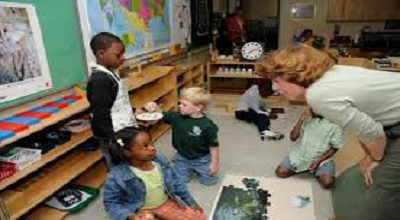Montessori Schools Losing Popularity
Montessori Schools Losing Popularity: Montessori education has been a buzzword in parenting and academic circles for decades. Praised for its child-centered approach, emphasis on independence, and hands-on learning, Montessori schools have seen a surge in popularity. However, recent trends suggest that the enthusiasm may be waning. What does this shift mean for the future of education?
In this in-depth exploration, we’ll examine:
- The rise of Montessori education
- Why some parents and educators are reconsidering it
- The implications for modern education systems
- Alternatives and hybrid models emerging in response
By the end, you’ll have a clearer understanding of whether Montessori is a fleeting trend or a lasting educational philosophy.
The Montessori Method: A Brief Overview
History and Philosophy
Developed by Dr. Maria Montessori in the early 20th century, the Montessori method emphasizes self-directed learning, mixed-age classrooms, and specially designed learning materials. Montessori believed children learn best in an environment that fosters independence and exploration.
Key Principles of Montessori Education
- Child-Centered Learning: Students choose activities based on interests.
- Prepared Environment: Classrooms are structured to encourage discovery.
- Hands-On Materials: Learning is tactile and experiential.
- Mixed-Age Groups: Older students mentor younger ones.
The Global Spread of Montessori Schools
From Italy to the U.S. and beyond, Montessori schools have expanded worldwide, with over 20,000 institutions today.
Why Montessori Schools Became So Popular?
Parental Demand for Alternative Education
Frustrated with traditional schooling’s rigidity, many parents sought Montessori for its flexibility and focus on creativity.
Celebrity Endorsements and Media Influence
High-profile figures like Jeff Bezos and Google’s founders attended Montessori schools, boosting its appeal.
The Appeal of Child-Led Learning
Parents appreciate that Montessori nurtures critical thinking rather than rote memorization.
The Decline in Montessori’s Popularity: Possible Reasons
High Costs and Accessibility Issues
Private Montessori schools can be expensive, limiting access for middle- and lower-income families.
Concerns About Academic Rigor
Some parents worry Montessori doesn’t prepare children for standardized testing and traditional academic structures.
Lack of Standardization Across Schools
Not all Montessori schools adhere strictly to the original philosophy, leading to inconsistent experiences.
What This Trend Reveals About Modern Education?
The Push for Personalization in Learning
Parents and educators increasingly seek tailored learning experiences, a core Montessori strength.
The Role of Technology in Education
Montessori’s hands-on approach sometimes clashes with digital learning trends.
Parental Expectations vs. Educational Realities
While Montessori fosters creativity, some parents feel it lacks structure in core subjects like math and reading.
Alternatives and the Future of Montessori
Hybrid Models (Montessori + Traditional)
Some schools blend Montessori with traditional teaching to balance creativity and academic rigor.
Public Montessori Programs
Charter and public Montessori schools are emerging, making the method more accessible.
The Rise of Other Progressive Education Models
Reggio Emilia, Waldorf, and project-based learning are gaining traction as alternatives.
Conclusion: Is Montessori Here to Stay?
Montessori’s fluctuating popularity reflects broader debates in education: structure vs. freedom, creativity vs. academic rigor. While some parents may move away from pure Montessori, its principles will likely influence future educational innovations.
